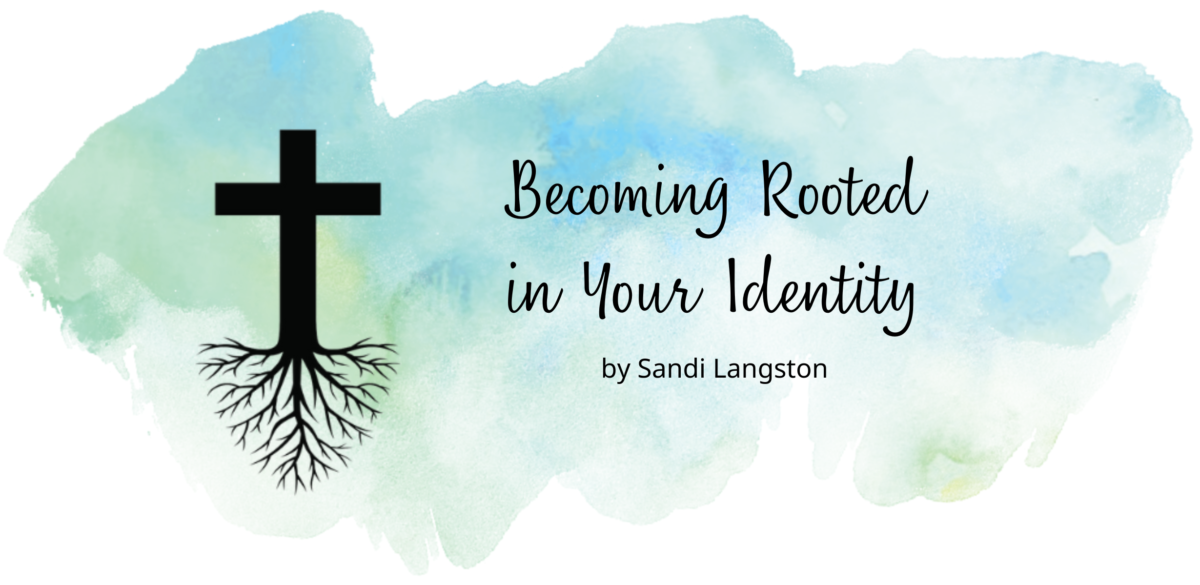Shame is a little word with a lot of power. It is that feeling of being very small in another’s eyes, of wishing the ground would open up and swallow us, of our heads hanging low while the blood rushes into our cheeks. Every person who is old enough to identify it has experienced shame at some point. It is rampant and is part of the human condition.
When we feel ashamed our eyes turn inward. It feels like the whole world is glaring at us, but most people probably do not even notice. In reality we are often the only ones doing the glaring at ourselves. We become so focused on ourselves that we cannot look to another, to care about what they might be experiencing at that moment. The self-absorption of shame places us at the centre instead of God. In essence, walking in shame is a result of sin: our sin in placing other people’s opinions higher than God’s; our sinful response to shame by hiding; and one effect of other people’s sin against us.
Unlike guilt, shame is not part of God’s plan for His children. Guilt is a healthy response to sins we have committed, and God’s solution of repentance and forgiveness absolves us of true guilt. Guilt is separate from ourselves. We may have done something bad, but that does not make us a bad person.
Shame attacks our personhood, our very identity. We feel as though we are not good enough. We are bad and unloveable. We are afraid to be known because we believe people will not like or love us if they knew the real us. At its core, it contains an element of self-despisal. It is accompanied by a sense of rejection from the other, whether real or perceived, as well as an internalised rejection of some aspect of the self. We cannot accept ourselves fully for who we are because we do not believe that we are good enough. The shame that so often creeps in to stay is not part of God’s plan for our lives.
Years ago God took me on a surprise personal journey. I chose to research shame for a counselling course assignment at Regent College, Vancouver. It sounded interesting. Little did I know that it was a divine setup and that God was working on that very issue in my own life at the time. I discovered heaps of my own shame – something of which I had not been aware! Though I have shed much of it, much prevails yet. Here is some of what I learned.
The funny thing about shame is that it thrives while hidden but it cannot survive when exposed in a safe relationship. The moment we acknowledge its presence to another caring person, it lessens or disappears altogether. Just as shame is first experienced within relationship, it is healed within relationship.
Anything could instigate shame knocking at our door. Someone shouted because we did something; they laughed because we like something; they teased because we are different in some way; they did something unspeakable to us; the possibilities are endless. Somewhere in our lives we picked up the idea that something – an action or desire or aspect of ourselves – is shameful. Whether or not it was intended, someone taught us that something is bad. We jump quickly to the conclusion that we are bad because of it. We internalise the belief that we are less loveable. No wonder we want these supposedly shameful attributes to remain hidden.
Shame usually appears in settings with other people. We sing in the shower if we think no one is listening, but we probably stop if someone makes their presence known. We indulge our strange habits only when no one else is around. Shame has a lot to do with what other people think, or with what we think they think. We feel as though their eyes are on us and they are frowning at us. While it appears in the presence of others, we try to keep it to ourselves. It is the nature of shame to remain hidden. We hide whatever thing or attribute of ourselves we consider to be shameful.
Shame also triggers our defense mechanisms. We may not always recognise the presence of shame, but suddenly we find ourselves angry, critical, emotionally numb, craving something delicious with which to satisfy ourselves, etc. We would do almost anything simply to avoid the painful feeling of shame.
There is no simple solution for shedding shame, but the following are steps towards greater freedom from shame.
- Bring shame into the light
Though it is counterintuitive to it’s default response to remain hidden, shame can only be healed when exposed in the presence of a loving other. That other may be God (and ultimately God is the source of unconditional love), but most often it is a trusted physical person. As we name shame and describe the reasons for our shame, unconditional loving acceptance brushes off shame, lifts our head, looks into our eyes with love, restores our dignity, and reminds us of our true identity.
- A loving relationship(s)
It is critical that the confidant is a safe, trustworthy person. If someone would break confidentiality, judge us, or use what we share against us, we would be buried deeper in shame and find it harder to trust anyone a next time. But when we are loved and accepted in spite of our supposed bad parts, we grow in trust and freedom from shame.
- Forgiveness
Often our experience of shame is directly linked to something that happened in our past. We were sinned against by word or deed. Full freedom from the shame can only come when we forgive the offender.
- Truth
Shame is based on falsity – lies we believe about ourselves. They are lies because they are contrary to the truth of God’s Word – that in Christ we are loved, chosen, beautiful, blameless, forgiven, flawless (Ephesians 1, Psalm 139:14, Song of Songs 4:7). Even if are guilty of downright evil, Christ’s forgiveness is enough when we repent, and we need not carry shame over it. Practically, we must repent for agreeing with lies about ourselves (false accusations) and choose to seek and agree with God’s Word about us (truth). See here and here for more about beliefs we hold about ourselves.
The more deeply we are rooted in our identity in Christ, the easier we will be able to shed shame. As we grow in the experiential knowledge that we are fully known and loved by God, we will grow in our ability to accept ourselves and others as we are. As with everything worth pursuing in life, it comes back to abiding in Christ, receiving God’s love, and letting Him free us.
May God bless you as you pursue Him and trust Him for greater freedom from shame!
PS. I am aware the language I have used of “parts” of ourselves falls short of describing our experience as holistic human beings.
Also, I can’t write about shame and not reference Brené Brown. Her work on shame, vulnerability and wholeheartedness is invaluable. See Brené Brown, The Gifts of Imperfection: Let Go of Who You Think You’re Supposed to Be and Embrace Who You Are (2018)
Other references include:
Gershen Kaufman, Shame: The Power of Caring. 2nd ed. Rochester: Schenkman Books, 1985.
Lewis B. Smedes, Shame and Grace: Healing the Shame We Don’t Deserve. San Francisco: HarperSanFrancisco, 1993.




